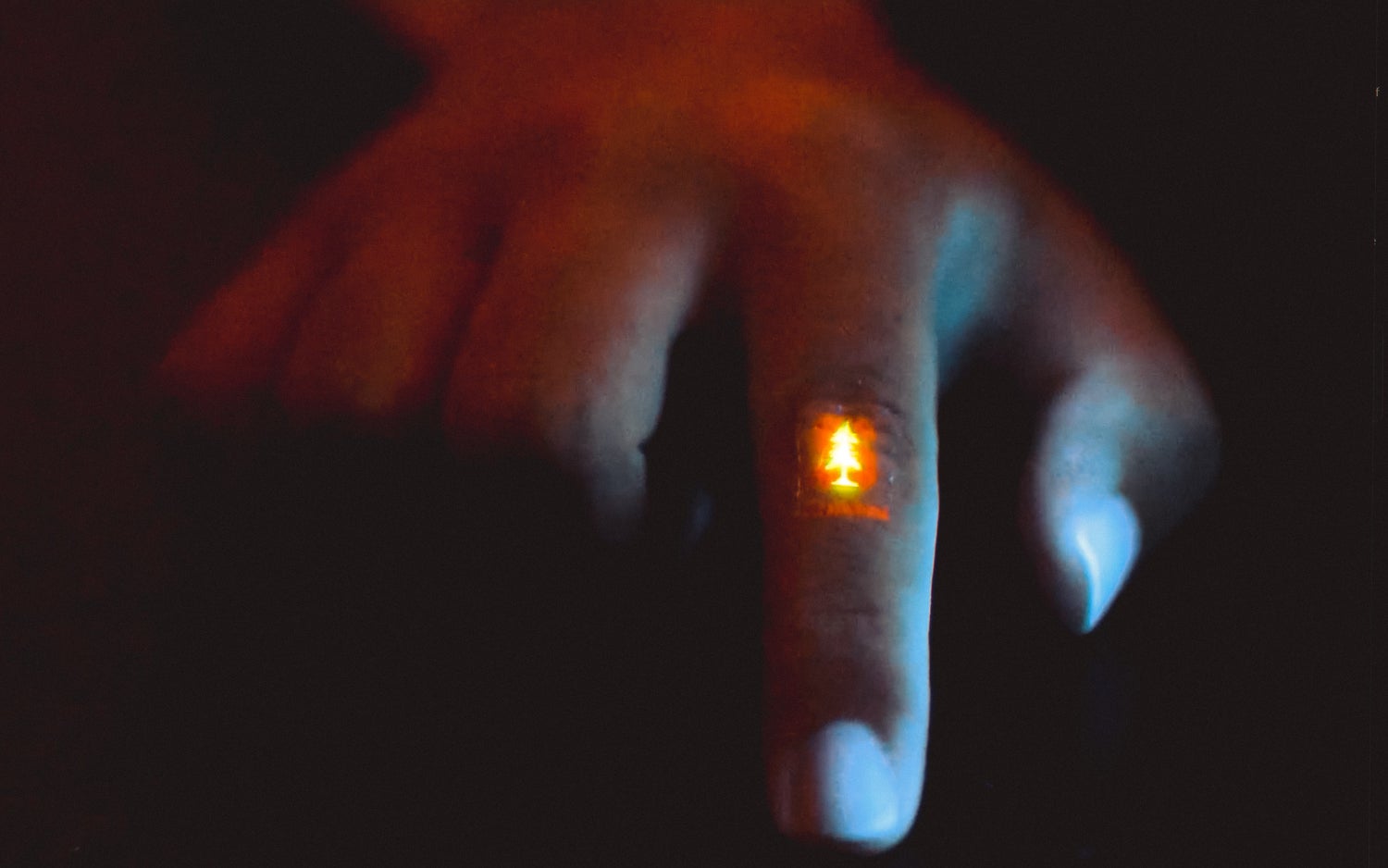Scientists make major breakthrough in designing a display that works like skin

Scientists have made a major breakthrough in making displays that are inspired by skin.
Researchers have made a stride towards building a stretchable display that could be reshaped, they report in a new scientific paper.
They hope the breakthrough can be used to create displays that can be crumpled up and stretched, in contrast with today’s flat, rigid and fragile screens.
The new display is bright and able to stay stable even when it is moved around, the researchers write in the paper, published in Nature.
At the moment, stretchable displays are usually created with inorganic materials – so need high voltage, or do not stretch especially well.
Instead, researchers Zhenan Bao and colleagues made a new process to build what they call ‘all-polymer light-emitting diodes’ or APLEDs.
Even when they are stretched to twice their length, the displays are still able to function, researchers write.
They are also able to be powered using radio waves, and were demonstrated in use by showing the live pulse of a person by blinking in time with a heartbeat.
An article describing the findings, ‘High-brightness all-polymer stretchable LED with charge-trapping dilution’, is published in Nature today.
Subscribe to Independent Premium to bookmark this article
Want to bookmark your favourite articles and stories to read or reference later? Start your Independent Premium subscription today.

Join our commenting forum
Join thought-provoking conversations, follow other Independent readers and see their replies
Comments